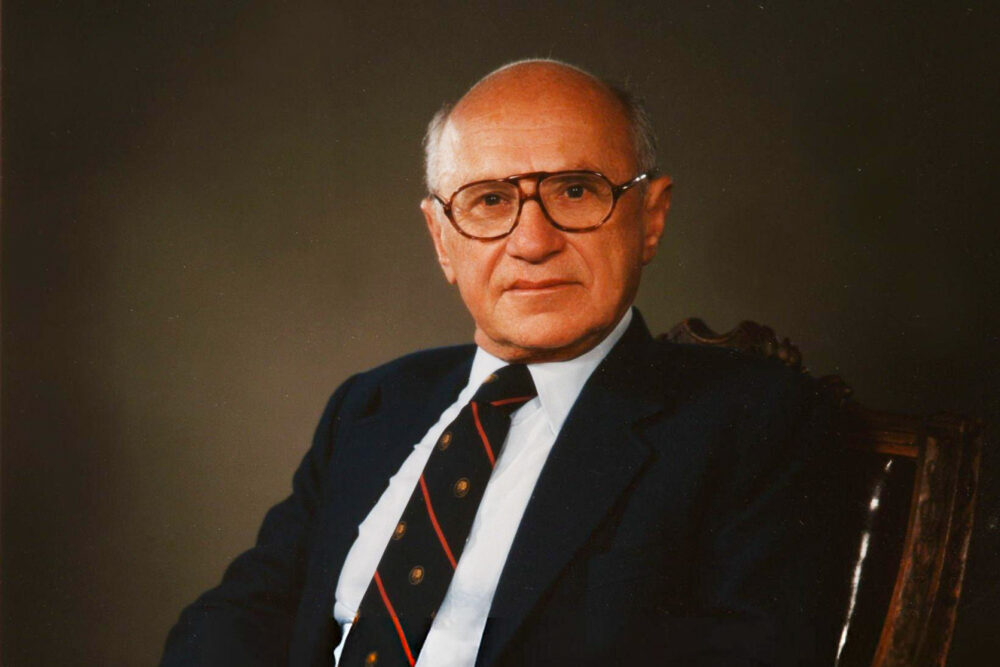As a Fulbrighter, the free market economist brought his vision to the United Kingdom.

Milton Friedman, PhD, was one of the most influential American economists of the twentieth century, known in academic, political, and popular culture for his promotion of free markets. In his early career, Friedman worked in Washington, D.C. at the National Resources Committee on a consumer budget study during the Great Depression. During World War II, he worked for the U.S. Treasury Department on tax policy. These experiences developed his ideas about consumerism and monetary policy.
Friedman went on to be a long-term professor of economics at the University of Chicago, leading what would become known as the “Chicago School” of economics, focusing on theories of consumption as well as monetary and banking systems. Throughout his career, he applied economic theory to real-world problems in the pursuit of peace and prosperity. For instance, in 1950, Friedman went to Paris as a consultant to the U.S. governmental agency administering the Marshall Plan to rebuild the European economy in the postwar period.
Friedman further developed his overseas connections as a Fulbrighter. From 1953 to 1954, Friedman was a Fulbright Scholar hosted at Gonville & Caius College at Cambridge University. Friedman said of his Fulbright that he was “able greatly to profit from” bringing his theories into a new department. He benefited from debates with a faculty “deeply divided” on the ideas of British economist John Maynard Keynes, a major thinker in the role of government in regulating business.
After returning to Chicago, Friedman wrote his books Capitalism and Freedom (1962), and A Monetary History of the United States (1963, with economist Anna Schwartz), an explanation of the economic causes of the Great Depression.
Following from his experience representing the United States abroad as a Fulbright Scholar and Marshall Plan adviser, Friedman said he was “increasingly drawn into the public arena.” He advised both Barry Goldwater and Richard Nixon as presidential candidates, and traveled throughout the world as a consultant to political leaders.
Friedman was awarded the Nobel Prize in 1976, acknowledging his contributions to economic sciences throughout this career. As a professor emeritus, he was a prominent economic advisor to President Ronald Reagan and British Prime Minister Margaret Thatcher, addressing issues now known as “stagflation.”
In his retirement, Friedman also developed a series of educational videos that would appear on the Public Broadcasting System (PBS) called Free to Choose, filmed in Hong Kong, Japan, India, Greece, Germany, and the United Kingdom. The 1980 PBS series, and an accompanying book, introduced Friedman’s economic theories to a new generation and have subsequently been translated and distributed widely around the world.
Quotes and timeline have been adapted from Friedman’s autobiography, written on the occasion of his being awarded the Nobel Prize in 1976. The autobiography was first published as the Nobel Lectures, Economics 1969-1980, Editor Assar Lindbeck (World Scientific Publishing Co., Singapore, 1992).